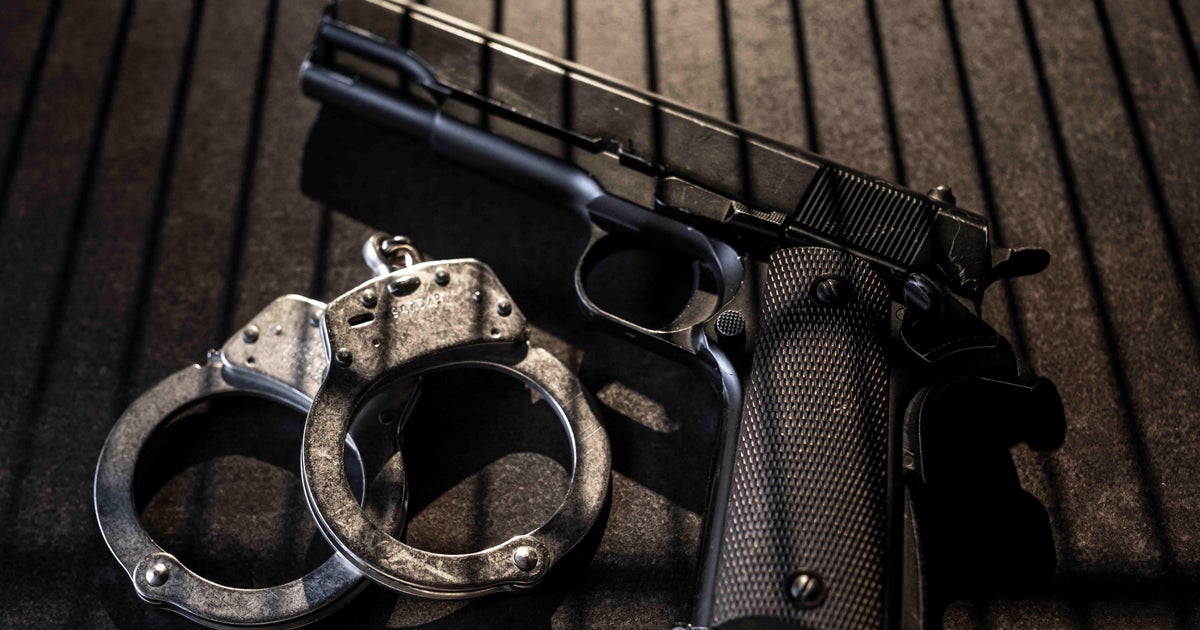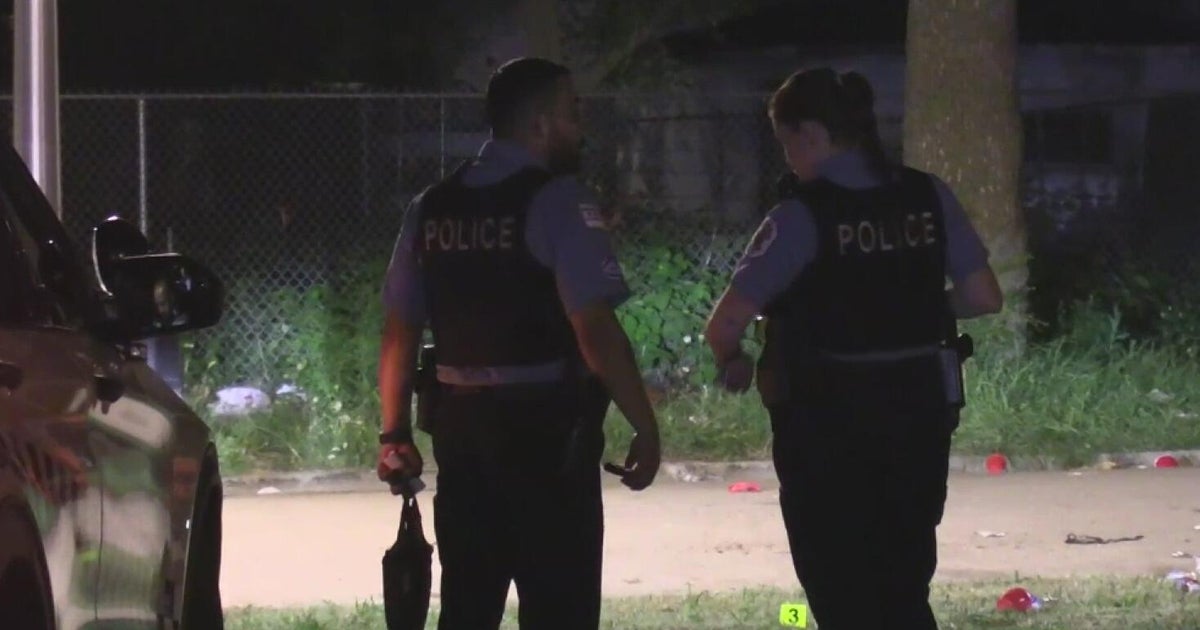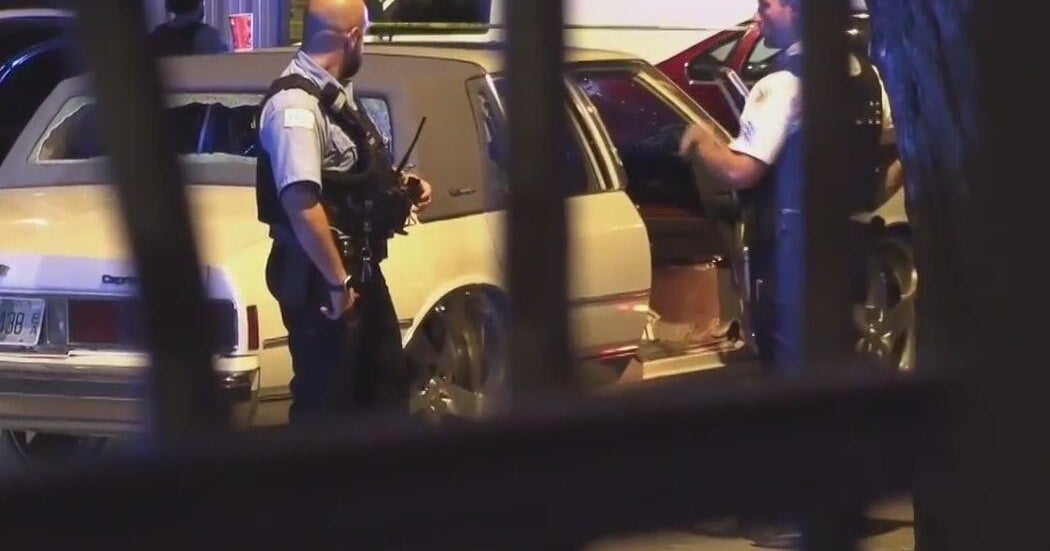How Often Do Chicago Police Officers Fail To Activate Their Body Cameras? It's Hard To Know
By Samah Assad, Megan Hickey
CHICAGO (CBS) -- Every Chicago patrol officer is required by a federal consent decree and departmental policy to wear and activate their body-worn camera to record their interactions with civilians.
Since the program's inception, the department has issued 8,200 body cameras to officers through city funding and grants. The U.S. Department of Justice has also awarded the department more than $2 million in grants to assist with the implementation of the program. The goal is to improve transparency, accountability, and safety between police and the public.
But a compliance evaluation by the City of Chicago Office of the Inspector General (OIG) found watch operations lieutenants failed to complete required reviews of body camera footage, and the department does not have a standardized process to do so.
"The department has not vigorously followed through on its own protocols," Chicago Inspector General Joe Ferguson said.
What Did The OIG Find?
The random reviews are required under the Police Department's policy, which says that operations lieutenants – supervisory personnel in patrol districts – must review one recording daily. The purpose is to see how officers utilize body worn cameras and if any necessary corrective action should be taken if they fail to follow the policy.
As part of the report, the OIG evaluated the Police Department's review of randomly selected body-worn camera recordings from November of 2017 through March of 2018 on the first seven districts that adopted body cameras: Wentworth, South Chicago, Gresham, Deering, Ogden, Shakespeare, and Austin.
Among the OIG's findings, police failed to:
- Complete all required random reviews in the timeframe the OIG evaluated. Multiple police districts fell short on the number of reviews that should have been completed.
- Effectively monitor compliance with its random review requirement, using definitions of compliance that are inconsistent and that do not allow police to determine whether randomized reviews are being conducted per policy.
- Implement a standardized process for randomly selecting recordings to review. In interviews with the OIG, it was discovered that lieutenants have not been using a random selection method. Instead, some admitted to picking shorter recordings and gravitating toward recordings from officers who were perceived to act in accordance with the policy. This "has created a risk that [lieutenants] are reviewing a biased sample" of recordings, the report said.
- Take corrective action against lieutenants for not completing random reviews.
[scribd id=420220157 key=key-ieIOhpkENZswW6P4rw1C mode=scroll]
A Pattern Of Failures
In the last year, CBS 2 Investigators uncovered multiple incidents where officers did not turn on or wear their body cameras, failing to capture critical moments. This includes missing body camera footage after Chicago Police officers raided the wrong homes and pointed guns at children.
In 2017, police wrongly raided the Mendez family's home. During the raid, officers handcuffed an innocent man in front of his children. The family also alleged officers pointed guns at them.
While some body camera video from that raid exists, the first two officers who entered the home, along with the sergeant in charge, failed to properly use or activate their body cameras, which could have shown what else happened in the home.
"There's a question of whether those protocols are adequate enough to capture an overall sense of these types of situations and how often they occur," Ferguson said. "It's a problem."
The OIG report cited incidents that demonstrate the importance of compliance with policy, including CBS 2's investigation into officers' failure to activate their equipment, as well as the shooting death of Paul O'Neal, an unarmed black teenager who was shot in the back during a police chase three years ago. The body camera video of the officer who shot and killed O'Neal was not working when he opened fire.
"Given the context of strained relationships between the Department and the community in recent years, it is essential that CPD establish and reinforce a culture of compliance within its BWC program," the report said, in part.
It's unclear if any officers have been disciplined for body camera issues. The department's current body camera policy does not outline specific discipline when or if the rules are violated.
David Harris, a law professor at the University of Pittsburgh, works with other city police departments to help improve policies. He also writes and teaches about police behavior, body camera use, and search and seizure law.
He said a lack of accountability when body camera policies are not followed impacts the success of the program – one that can protect both civilians and police.
"Because if you can operate outside the rules and there are no consequences, you effectively have no rules," Harris said.
Another key policy failure the OIG uncovered stems from the department's Body Worn Camera Program Evaluation Committee.
The committee is tasked with producing reports and meeting quarterly to evaluate the program's effectiveness and ensure officers comply with the policy.
But the OIG found the committee did not meet in the third and fourth quarters of 2017.
In mid-July, CBS filed a Freedom of Information Act request for final quarterly reports presented during the body worn camera Evaluation Committee. The Police Department denied the request. According to the OIG's report, at least two of those quarterly meetings did not take place.
"If the rules say you get a camera, you make sure it works and you use it in these sorts of situations, and the officer did not do that, there have to be consequences," Harris said. "If there are no consequences for that, your program does not serve the public. It serves only the police."
Looking Ahead
The OIG outlined recommendations to the Police Department in its report. Among them are developing a standardized process for randomly selecting recordings for review and implementing an effective method for monitoring compliance. In addition, the OIG recommended the committee meets quarterly and regularly.
In a response letter to the OIG and its findings, the Police Department's General Counsel, Dana O'Malley, acknowledged its need to improve compliance with reviewing body camera footage and identified plans for action. This includes working with its body camera service provider, Axon, to automate components of the random review process and also incorporate that process into the training curriculum for new lieutenant classes.
In addition, the report said the Police Department began taking steps during the OIG evaluation to improve the random reviews, including revising its policy to require lieutenants to log their reviews in reports and require districts to submit the reports to the Inspections Division each month.
The Police Department also plans to implement a dashboard that can indicate if supervisors are conducting reviews as required, the report said.
However, the report emphasized the Police Department did not provide a timeframe for when these goals would be met.
When asked for comment about the OIG report Monday, Chicago Police Department Spokesman Anthony Guglielmi said, "We have not seen the Inspector General's report as of yet." Tuesday morning, Guglielmi referred CBS 2 to the department's response in the OIG report. He said the body worn camera audits have been added to the department's CompStat process, and commanders will be assessed on compliance every two weeks. The department has also moved inspectors under the CompStat unit to perform field audits on that and other CompStat functions, he said.
Mayor Lori Lightfoot reiterated Tuesday morning that Police Supt. Eddie Johnson already has made changes to the body camera program in response to the OIG findings.
"The superintendent has taken some specific steps to, number one make sure that the inspection unit is now part of the CompStat process. So as part of the questions that commanders will get asked, they're going to be asked now specifically about their compliance with this particular directive," she said.
Johnson acknowledged "a few" lieutenants were not reviewing body camera footage as required, but said "I want to reiterate that two-thirds of them were doing it." He did not provide information to back up those stats, and the OIG did not evaluate or make a determination on the other two-thirds of districts.
"For those individuals that weren't in compliance, then they'll be some accountability with them," Johnson said.
The superintendent declined to say if any officers would face suspensions or other disciplinary action as a result of the OIG report.
"We'll see going forward," he said.
Lightfoot said she was confident Johnson was taking appropriate steps to respond to the OIG report's findings.
"I know that the superintendent is concerned about the fact that the lieutenants who had a responsibility to make those checks didn't do it. So we'll be handling that internally to make sure that that, A, gets done; and that there's a level of accountability for those who fail to fulfill their obligations to make sure that they were doing those inspections," she said.
Chicago Fraternal Order of Police President Kevin Graham said potential discipline in regards to officers failing to follow the department's body camera policy is the subject of negotiations that are pending. He described the program as an "unfair labor practice," citing ongoing contract negotiations.
In a statement, Ald. Chris Taliaferro, chairman of the City Council Committee on Public Safety, said while he is "encouraged" that police leadership acknowledged the failures uncovered by the OIG, he also urged Johnson to provide a timeline on when measures will be put in place. You can read his full statement below:
"Although I am encouraged that the leadership within the Chicago Police Department has acknowledged its failure to comply with its Special Order S03-14, I am also frustrated that within the last several weeks, we have had to address issues that serve to continue to erode public trust in our police department. I sincerely believe that Superintendent Eddie Johnson will continue to make every effort to restore the community's faith in our Department. In doing so, it is quite important that the recommendations of Deputy Inspector General Joseph Lipan be fully implemented without hesitation. Across this country, no police department is perfectly run, including the Chicago Police Department. However, when we recognize our shortcomings and failures, it should be our strength in building community based policing to correct them. As such, and as I monitor the Department's progress with implementation of the OIG's recommendations, I would urge Sup. Eddie Johnson, to provide a timeline on when these measures will be put in place. "



